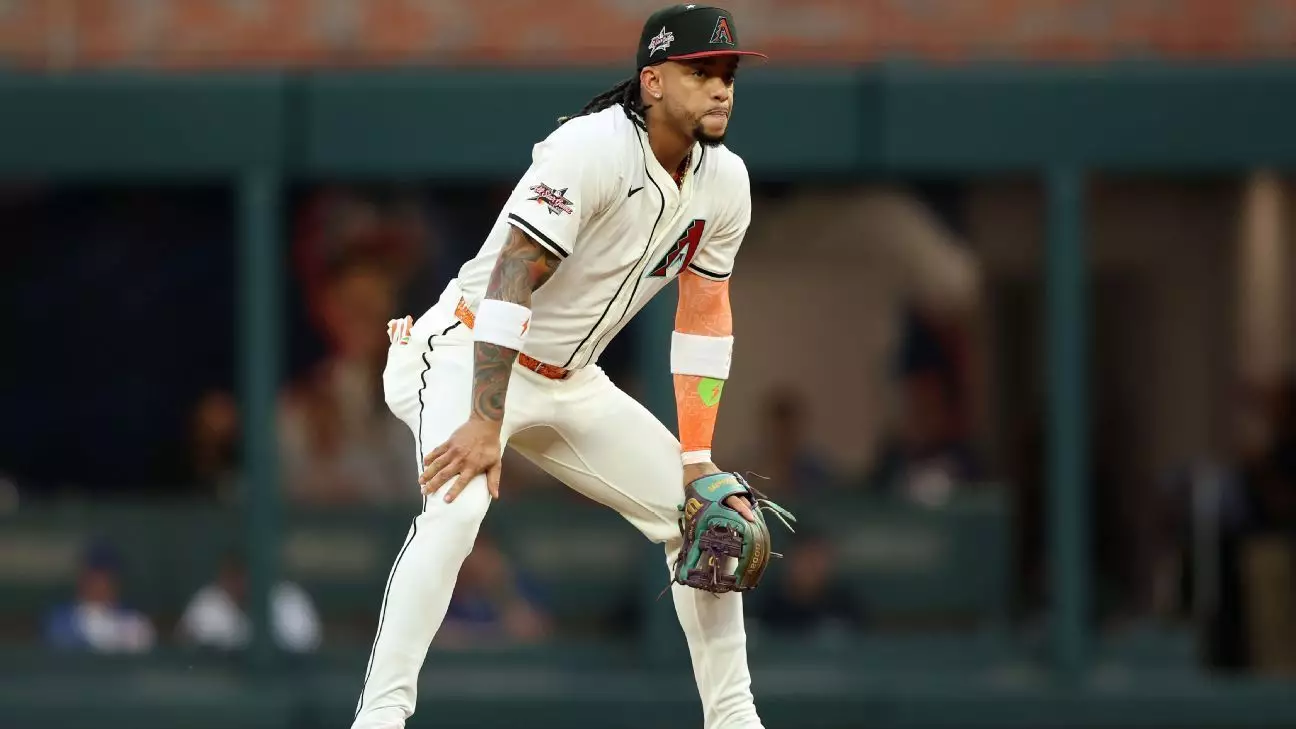In the high-stakes arena of Major League Baseball, talent alone does not guarantee a team’s success or the respect of its peers. Ketel Marte’s story serves as a compelling case study of how personal struggles, external criticism, and leadership intersect in professional sports. As an elite athlete, Marte’s exceptional performance on the field — exemplified by his stellar batting average, home runs, and RBIs — highlights his undeniable talent. Yet, off the field, he becomes a focal point for broader issues about accountability, team cohesion, and mental resilience.
This dichotomy underscores a truth often overlooked: athletes are multi-dimensional individuals subject to the same vulnerabilities as anyone else, especially in moments of personal crisis. Marte’s decision to fly back to the Dominican Republic following the All-Star break, coupled with the burglary that destabilized him emotionally, reveals the complex reality behind athletic excellence. It’s easy to celebrate his offensive numbers but far more difficult to grapple with the human element that underpins those achievements. Real leadership involves acknowledging these challenges honestly, not hiding behind statistical accomplishments.
The Cost of Perceived Absences in a Competitive Landscape
Criticism of Marte’s absence reflects a broader societal tendency to cling to transactional views of professionalism. The narrative pushed by some fans and commentators suggests that missing games — especially during a pivotal stretch — signifies a lack of commitment. But this perspective fails to recognize the heavy toll that personal hardship and mental health challenges impose on even the most dedicated athletes. The fact that Marte faced burglary and emotional distress during a critical period doesn’t diminish his contribution; rather, it amplifies the importance of holistic athlete management.
The team’s reaction, as expressed by manager Torey Lovullo, offers insight into what true leadership looks like: a recognition of vulnerability, support for personal well-being, and a focus on collective growth. Lovullo’s openness about Marte’s character — describing him as a “great teammate” who “plays hard every single day” — suggests that leadership must be rooted in understanding rather than mere results. The argument that Marte’s absence adversely affected team dynamics is too simplistic; it misses the nuanced reality that human factors deeply influence team performance.
The Illusion of Uniformity in Player Commitment
Baseball, like many team sports, perpetuates mythologies around unwavering dedication and consistency. These myths are damaging because they set unrealistic standards that ignore human complexity. Marte’s experience reveals that even players who excel offensively and defensively can struggle with external pressures and personal setbacks. His injuries and the mental toll of losing his home create a narrative of resilience that surpasses mere physical endurance — demanding emotional strength, adaptability, and authenticity.
Critics who focus solely on game participation risk overlooking the importance of mental health, family, and personal stability. The criticism Marte received for missing games overlooks the fact that athletes are prone to burnout and emotional fatigue — especially when their personal lives are upheaved. The emphasis should shift from punishing perceived shortcomings to fostering an environment where mental well-being is prioritized, ultimately benefiting individual players and team outcomes in the long run.
The Bigger Picture: Reimagining Team Culture and Success
The Arizona Diamondbacks’ recent struggles and their trade deadline decisions are not solely a function of Marte’s absence; they are a reflection of systemic issues within the organization’s approach to team culture. The emphasis on immediate results, coupled with a tendency to judge players based on short-term performance, fosters an environment ripe for criticism and mistrust.
A healthier, more sustainable approach recognizes that success is a mosaic composed of technical skill, mental resilience, and organizational support. Marte’s season, with its highs and lows, exemplifies this reality. His offensive production remains impressive, but his true value lies in his ability to navigate adversity, demonstrating that leadership extends beyond the box score. If teams are willing to embrace vulnerability and support their players holistically, they will cultivate not just talented athletes, but resilient leaders capable of guiding organizations through turbulent times.
By reevaluating what it means to be committed, accountable, and resilient, baseball teams can move toward a more compassionate and effective model of excellence. Marte’s journey is a reminder that greatness is not just measured by numbers but by the courage to face personal demons and continue fighting — both on and off the field.


Leave a Reply